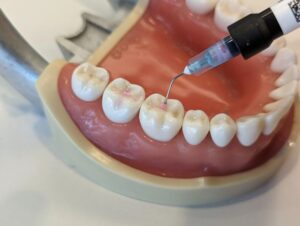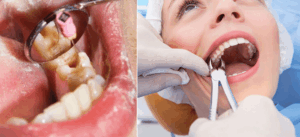Recovery after oral surgery depends on several elements, including the type of procedure and individual health. Patients under the care of an affordable cosmetic dentist can expect healing times to vary, but proper post-surgery care makes a major difference. Consistent hygiene, prescribed medication, and following aftercare instructions all help the mouth heal more efficiently.
While complications are rare, factors such as smoking, certain medical conditions, or poor nutrition can slow recovery. Healing times differ by procedure, simple extractions often heal within a week, while more complex treatments, such as dental implants, may take several months. With attention to care and healthy habits, patients can support steady healing and minimize discomfort.
Type of Oral Surgery
The nature of the procedure directly affects recovery time. Wisdom tooth removal generally takes longer to heal due to the depth of extraction and surrounding tissue involvement. In contrast, a simple tooth extraction may recover more quickly with minimal discomfort. More complex procedures, such as dental implants or jaw correction surgeries, often require extended recovery because of bone and tissue healing.
Understanding the scope of your surgery helps set realistic expectations and allows you to plan your schedule accordingly. Closely following your oral surgeon’s care instructions helps reduce pain and prevent setbacks during recovery.
Overall Health Condition
Your general health has a strong influence on how quickly your mouth heals after surgery. People in good health typically experience faster recovery and fewer complications. Conditions such as diabetes, heart disease, or immune disorders can slow tissue repair, making recovery longer.
Smoking, poor diet, and certain medications can also interfere with healing. Informing your oral surgeon about any existing medical issues ensures that your care plan is customized to your needs. Maintaining balanced nutrition, staying hydrated, and getting enough rest all play an active role in promoting better recovery outcomes.
Post-Op Care Instructions
Following your oral surgeon’s post-operative directions is one of the most reliable ways to heal efficiently. Keeping the surgical area clean without disturbing stitches helps prevent infection. Avoiding physical strain, sticking to soft foods, and taking prescribed medication as directed can ease discomfort.
Refraining from smoking or using straws prevents complications such as dry socket or bleeding. Attending all follow-up appointments allows your dentist to check your progress and make any needed adjustments to your care. Staying consistent with these steps leads to smoother, quicker healing.
Complications and Risk Factors
Although complications after oral surgery are uncommon, they can occur if care guidelines are ignored. Possible issues include infection, excessive bleeding, or delayed wound healing. Risk factors that may raise these chances include smoking, certain chronic illnesses, or medications that affect blood clotting.
Providing your dentist with a full medical history allows them to take precautions and recommend suitable aftercare. If you experience unusual swelling, prolonged pain, or persistent bleeding, contact your dental provider immediately for evaluation. Prompt attention helps prevent minor concerns from developing into more serious problems.
Healing Timeframes for Different Procedures
The time it takes to recover from oral surgery varies depending on the treatment. Simple tooth extractions generally heal within a week, while discomfort tends to ease after a few days. Wisdom tooth removal may require one to two weeks, depending on the complexity of the case.
Dental implants can take several months, as the bone needs to fuse around the implant for stability. Root canal procedures usually allow patients to return to normal activity within a short period. Having a clear idea of these timelines helps patients prepare and manage expectations during recovery.
Lifestyle Factors and Habits
Daily habits strongly influence how quickly surgical sites heal. A nutrient-rich diet that includes foods with vitamins A, C, and E supports tissue repair and strengthens the immune system. Staying hydrated encourages cell renewal, while reducing sugary or acidic foods helps avoid irritation.
Smoking slows blood flow and limits oxygen delivery, both of which can delay healing and raise the risk of infection. Alcohol should also be avoided until recovery is complete, as it can interfere with medications and weaken the body’s healing response. Making thoughtful lifestyle choices before and after surgery promotes faster recovery and long-term oral health.
Related Topics:






